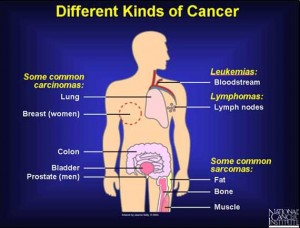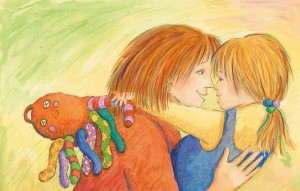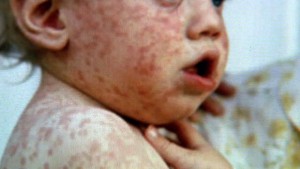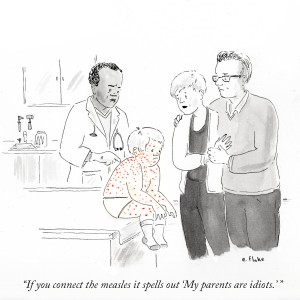Misconceptions about fever are commonplace. Many parents needlessly worry and lose sleep when their child has a fever. This is called fever phobia. Overall, fevers are harmless. Let the following facts help you put fever into perspective:
Myth: My child feels warm, so she has a fever.
Fact: Children can feel warm for many reasons such as playing hard, crying, getting out of a warm bed, or being outside on a hot day. They are “giving off heat.” Their skin temperature should return to normal in 10 to 20 minutes. Once these causes are excluded, about 80% of children who feel warm and act sick actually have a fever. If you want to be sure, take your child’s temperature. The following are the cutoffs for fever using different types of thermometers:
• Rectal, Ear, or Temporal Artery Thermometers: 100.4°F (38.0°C) or higher
• Oral or Pacifier Thermometers: 100°F (37.8°C) or higher
• Under the Arm (Axillary or Armpit) Thermometers: 99°F (37.2°C) or higher
___________________________________________________________
Myth: All fevers are bad for children.
Fact: Fevers turn on the body’s immune system and help the body fight infection. Fevers are one of the body’s protective mechanisms. Normal fevers between 100°F and 104°F (37.8°C and 40°C) are actually good for sick children.
___________________________________________________________________
Myth: Fevers above 104°F (40°C) are dangerous and can cause brain damage
Fact: Fevers with infections don’t cause brain damage. Only body temperatures above 108°F (42.3°C) can cause brain damage. The body temperature climbs this high only with extreme environmental temperatures (eg, if a child is confined to a closed car in hot weather).
_______________________________________________________________
Myth: Anyone can have a febrile seizure (seizure triggered by fever).
Fact: Only 4% of children can have a febrile seizure
______________________________________________________________
Myth: Febrile seizures are harmful
Fact: Febrile seizures are scary to watch, but they usually stop within 5 minutes. They cause no permanent harm. Children who have had febrile seizures do not have a greater risk for developmental delays, learning disabilities, or seizures without fever.
_________________________________________________________________
Myth: All fevers need to be treated with fever medicine
Fact: Fevers only need to be treated if they cause discomfort. Usually fevers don’t cause any discomfort until they go above 102°F or 103°F (39°C or 39.5°C).
_____________________________________________________________________
Myth: Without treatment, fevers will keep going higher.
Fact: Wrong. Because the brain has a thermostat, fevers from infection usually don’t go above 103°F or 104°F (39.5°C or 40°C). They rarely go to 105°F or 106°F (40.6°C or 41.1°C). While the latter are “high” fevers, they are harmless ones.
________________________________________________________________
Myth: With treatment, fevers should come down to normal.
Fact: With treatment, fevers usually come down 2°F or 3°F (1°C or 1.5°C)
________________________________________________________
Myth: If the fever doesn’t come down (ie, if you can’t “break the fever”), the cause is serious.
Fact: Fevers that don’t respond to fever medicine can be caused by viruses or bacteria. It doesn’t relate to the seriousness of the infection.
_________________________________________________________________
Myth: Once the fever comes down with medicines, it should stay down.
Fact: The fever will normally last for 2 or 3 days with most viral infections. Therefore, when fever medicine wears off, the fever will return and need to be treated again. Fever will go away and not return once your child’s body overpowers the virus (usually by the fourth day).
__________________________________________________________________
Myth: If the fever is high, the cause is serious.
Fact: If the fever is high, the cause may or may not be serious. If your child looks very sick, the cause is more likely to be serious.
__________________________________________________________________
Myth: The exact number of the temperature is very important
Fact: How your child looks is what’s important, not the exact temperature.
_______________________________________________________________
Myth: Oral temperatures between 98.7°F and 100°F (37.1°C and 37.8°C) are low-grade fevers.
Fact: These temperatures are normal variations. The body’s temperature normally changes throughout the day. It peaks in the late afternoon and evening. An actual low-grade fever is 100°F to 102°F (37.8°C to 39°C).
___________________________________________________________________
Summary: Remember that fever is fighting off your child’s infection. Fever is one of the good guys.










